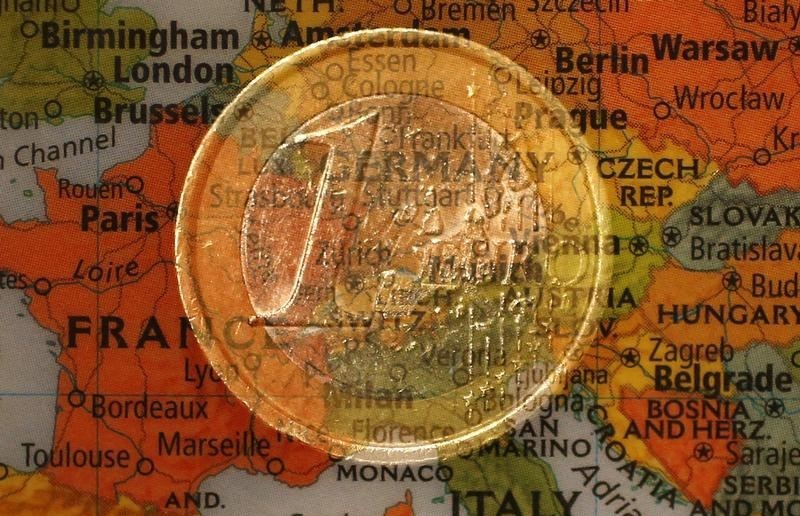BRUSSELS (Reuters) - Rising household demand and steady government spending kept the euro zone economy growing in the third quarter despite a further fall in investment and a negative contribution from trade, data from the European Union's statistics office showed on Friday.
Eurostat confirmed its earlier estimate that the economy of the 18 countries sharing the euro expanded 0.2 percent quarter-on-quarter for a 0.8 percent year-on-year rise after a 0.1 percent quarterly growth in the second quarter and 0.3 percent in the first.
Eurostat said that household demand added 0.3 percentage points to the overall quarterly outcome and government spending added another 0.1 point. Contribution from inventories was zero.
Falling investment took away 0.1 point from the final result and the rest came off due to the negative contribution from net trade when compared to the second quarter.
The euro zone's biggest economy Germany grew 0.1 percent quarter-on-quarter and second biggest France accelerated to 0.3 percent growth from a 0.1 percent contraction in the previous three months.

Third biggest Italy slipped into technical recession, recording the second consecutive quarter of falling output with a 0.1 percent contraction in the July-Sept period.
(Reporting By Jan Strupczewski; editing by Philip Blenkinsop)